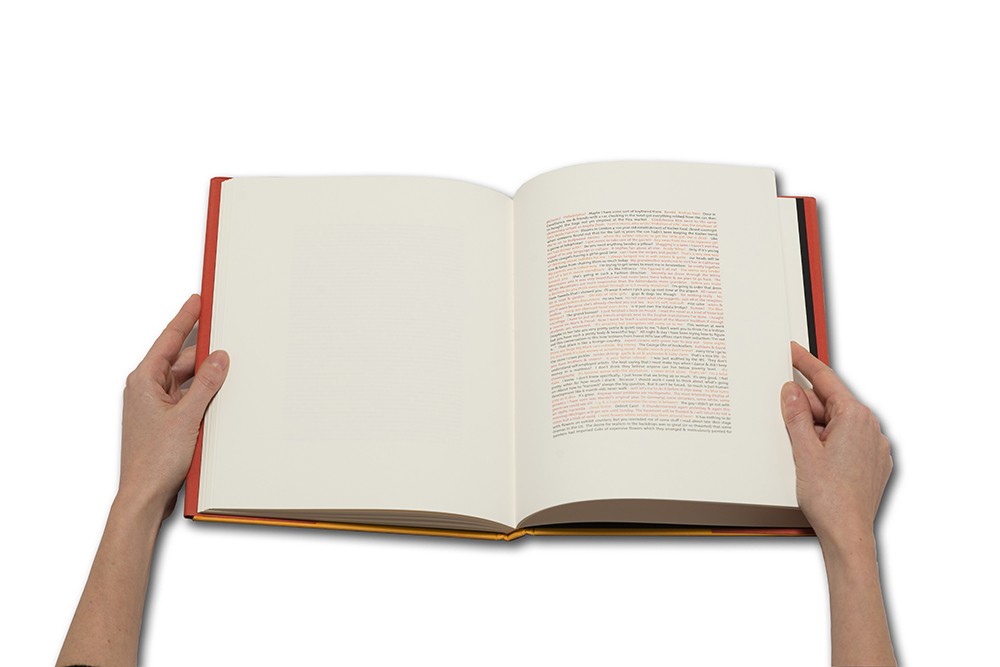
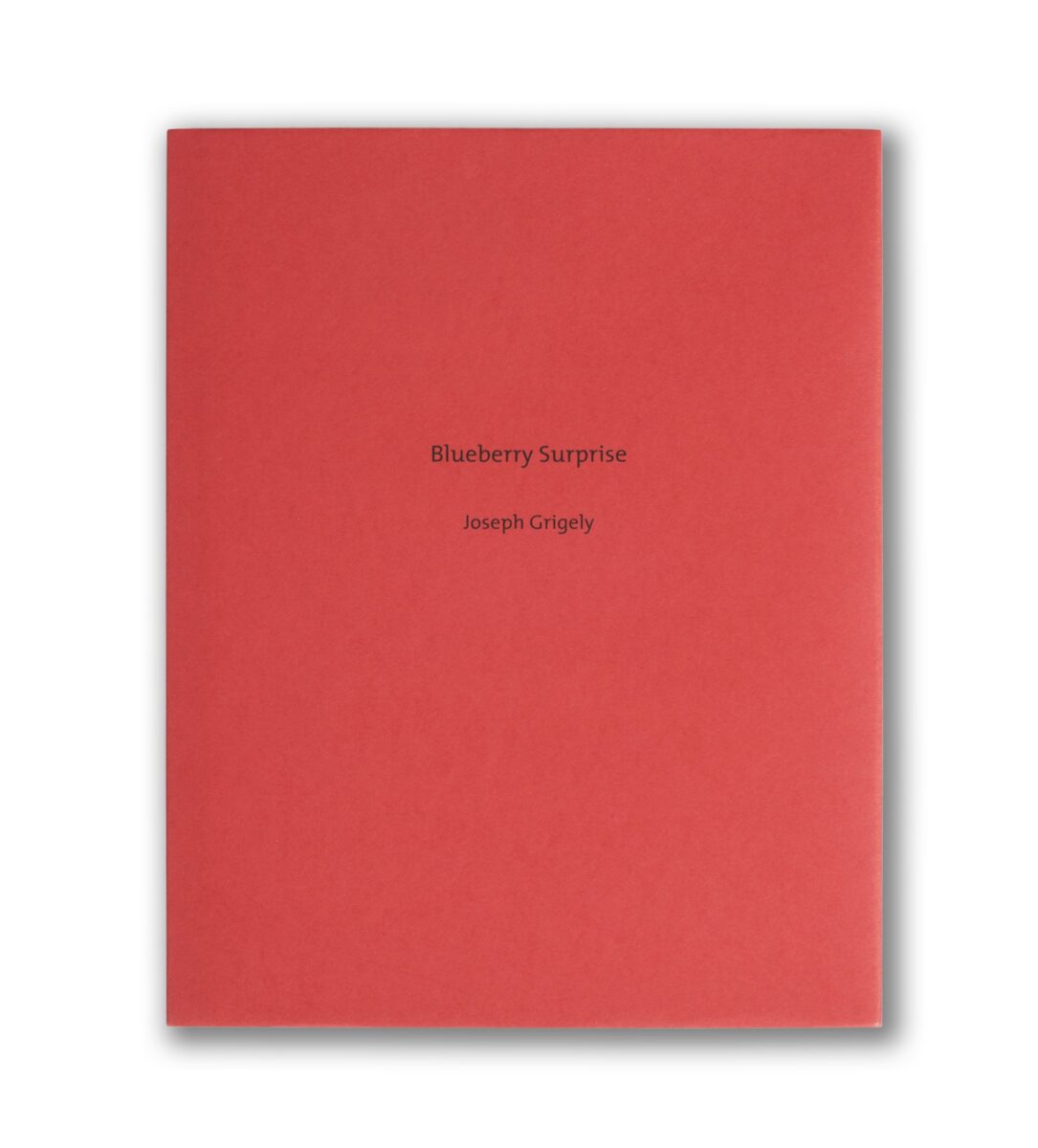
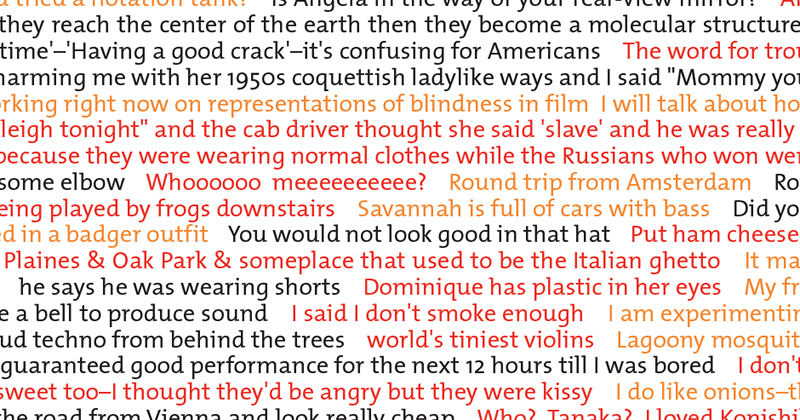
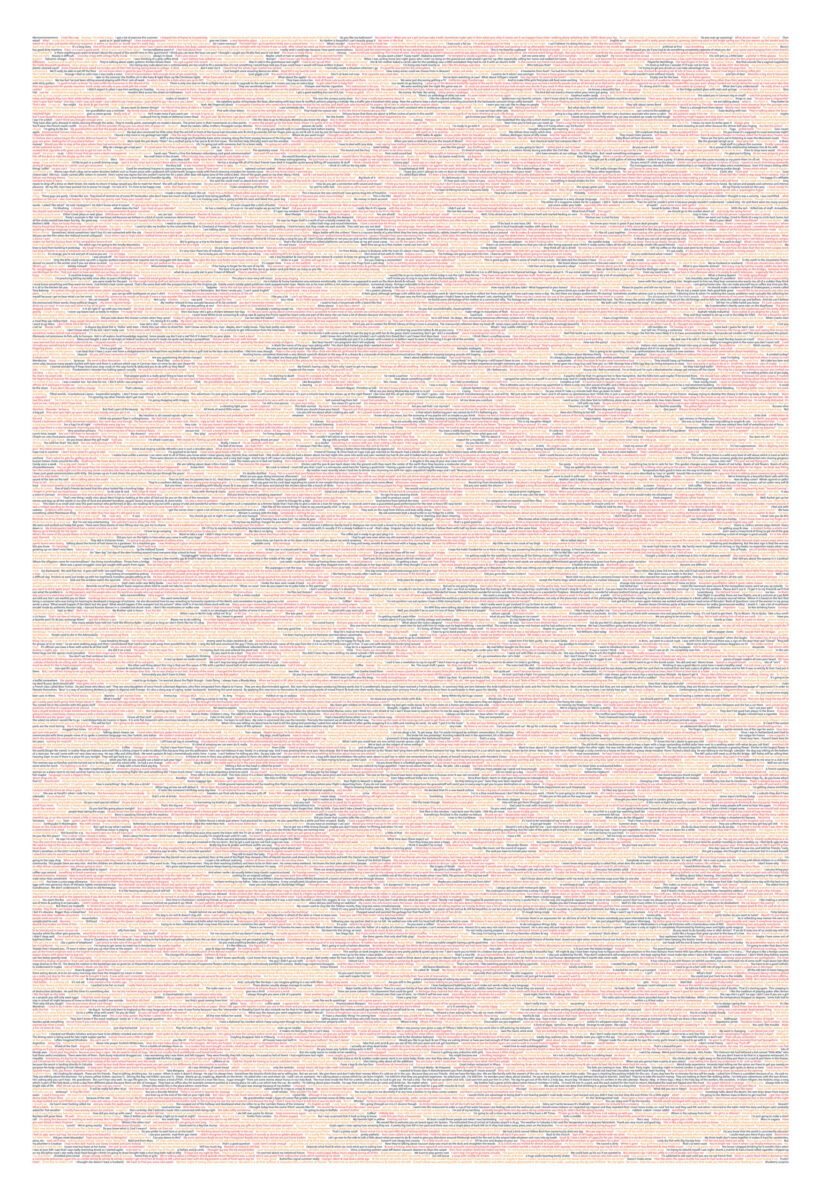
Edition of 250
11 x 8 1/2 inches (28 x 21.4 cm)
Signatures are double-stitched with linen thread and numbered on last page
(Inventory #33413)
Edition of 250
11 x 8 1/2 inches (28 x 21.4 cm)
Signatures are double-stitched with linen thread and numbered on last page
(Inventory #33413)
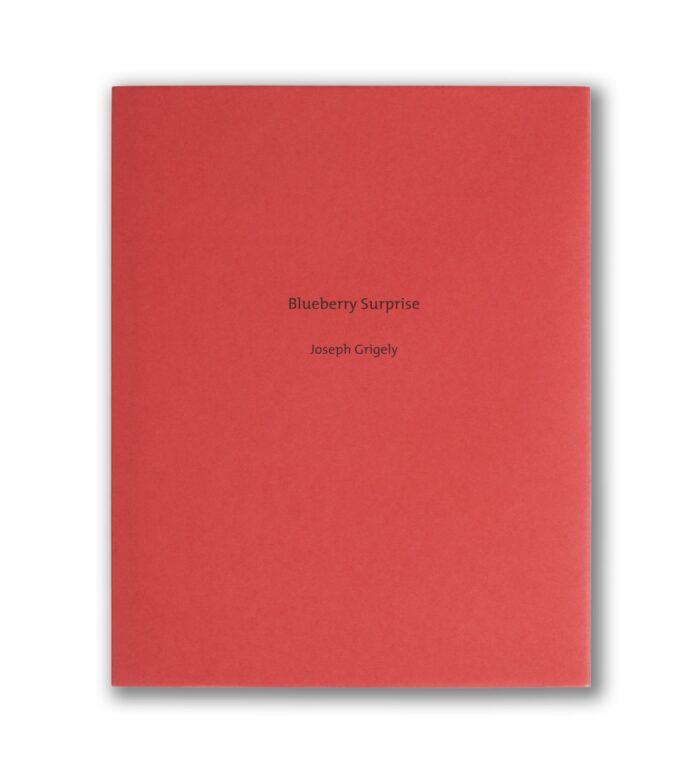
Joseph Grigely’s “Blueberry Surprise” consists of one continuous line of text (45,000 words in 5,000 messages in three colors) transcribed from written conversations that the artist collected for over ten years. Anything that possibly made the messages recognizable (attribution, handwriting, etc.), disappeared when they were transcribed. The transcription, though, does have the punctuation, misspellings, etc. of the original written conversations. The font used is known as “The Mix,” an appropriate metaphor for the range of people whose voices comprise the piece. The different colors (red, orange and black) of the sentences denote the switching from one “voice” to another. The arrangement of the text on the page explores ideas of continuity and fragmentation, thus representing the very flow of almost any conversation.
Looking at the Latin etymology of the word “text,” one comes to the verb “texere” meaning “to weave” or “to braid”. With Grigely’s “Blueberry Surprise,” we have a powerful collection of intertwined fragments, quietly playing with composition, patterning, rhythm and more. Even with all the “weaving”, it is quite challenging, on account of the inconsistent punctuation, to read the entire text out loud from beginning to end. So… is “Blueberry Surprise” a one-page book, devoted to quiet reading or perhaps a visualization of what a conversation looks like? Joseph Grigely eliminates the initial function of a daily communication tool and creates something new with it, revealing possible engagements that are absurd, hilarious, moving and/or profound.
DEU, Hambourg, 2016, Kunstverein Hamburg : exhibition of Joseph Grigely: “THE GREGORY BATTCOCK ARCHIVE”, Copyright photo: Fred Dott, 2016
Joseph Grigely
Artist, Writer
Born 1956, East Longmeadow, MA
Lives in Chicago, IL
Artist Statement
Some years ago I was sitting in the New York apartment of a friend having tea and a conversation. A large part of our exchange had to do with the senses, and how communication involved a wide array of possibilities outside the norm of what it means to be human. Deep into the conversation, my friend told me a story about a blind baby who had learned to imitate—perfectly—the sound of a refrigerator and the sound of a car going over gravel as it approached the house. After a long pause in which we considered the implications of this, my friend turned to me and said: “Beauty is difficult. Never forget that.”
10 Newbury Street, Boston, Massachusetts 02116
617-262-4490 | info@krakowwitkingallery.com
The gallery is free and open to the public Tuesday – Saturday, 10am – 5:30pm